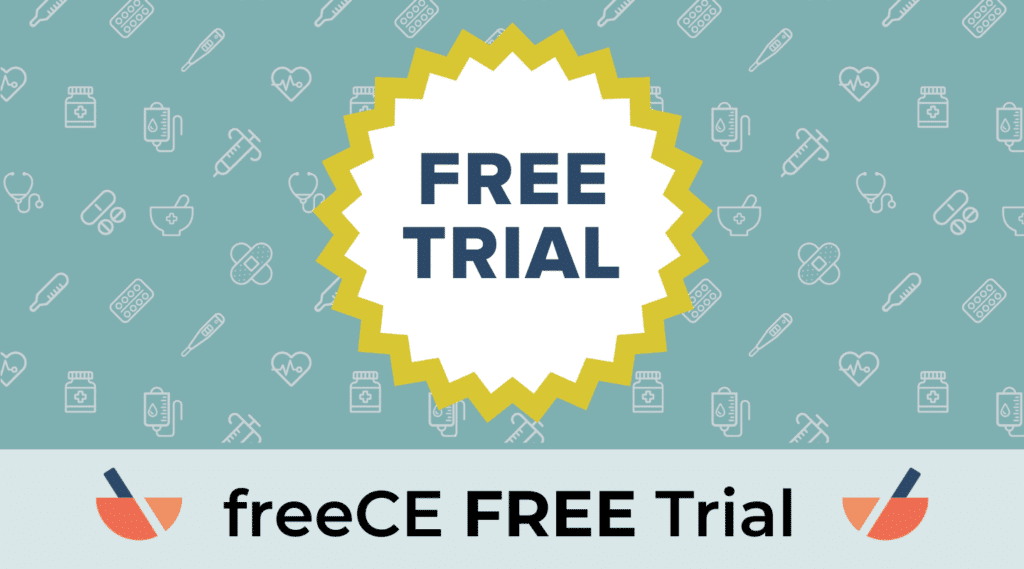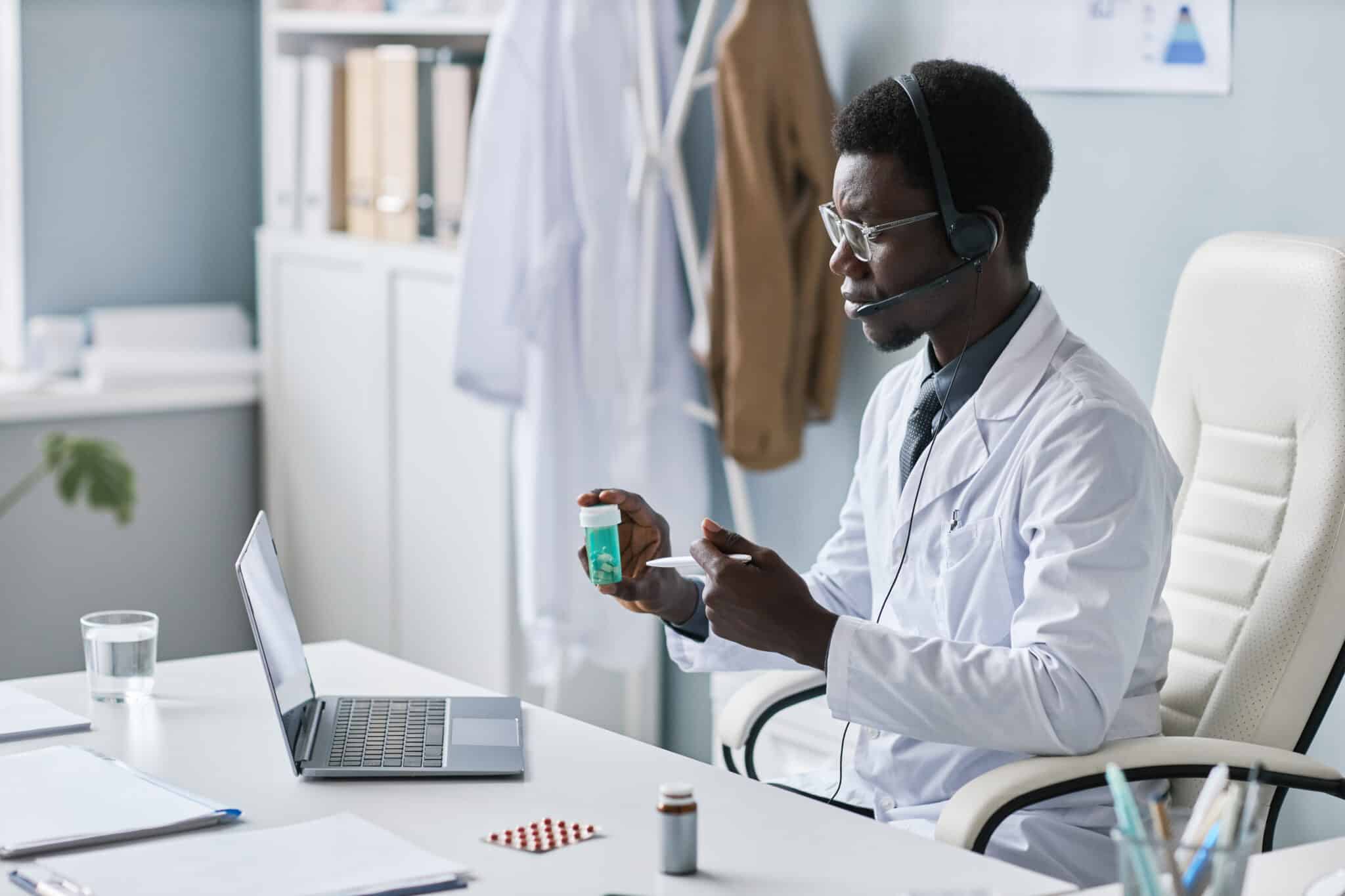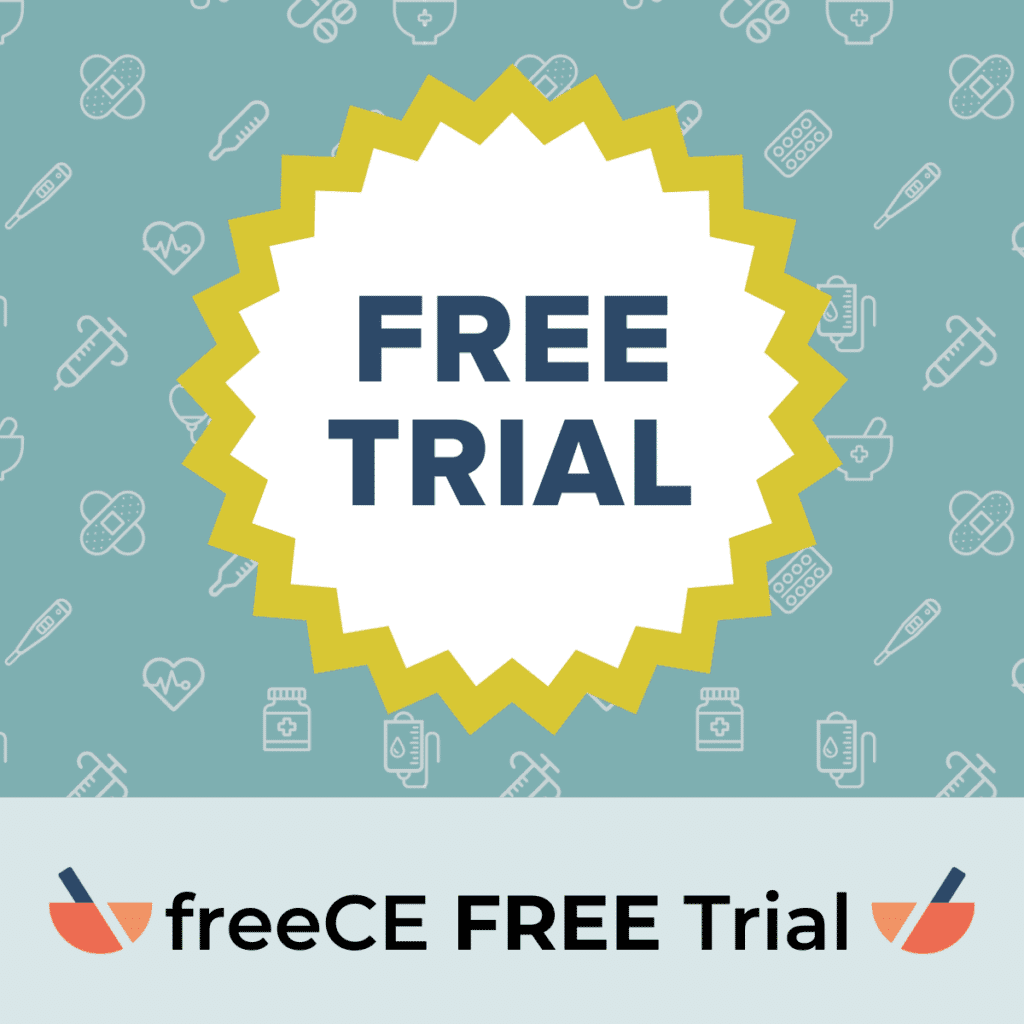The expansion of pharmacy technician roles and responsibilities has opened many new career pathways, which can be found outside the traditional community or clinical pharmacy sector. These new alternative career paths for pharmacy technicians often require additional focused training and education.
In the freeCE webcast Alternative Pharmacy Career Pathways for Technicians, Devin Wallace, CPhT, CSPT, RPhT, PRS, discusses non-traditional pharmacy career pathways for pharmacy technicians.
Here is a part of the transcription from that presentation:
Table of Contents
There are many alternative career pathways for pharmacy technicians but we will only cover a few. But as the industry is growing and more responsibilities are given to pharmacy technicians, this list is ever growing.
Medication Access
One of these alternative pathways would be medication access, which would be patient care or engagement coordinator, working with manufacturers to bring medications at low cost to patients. Another is Insurance contracts and licensing audits.
Automation
Pharmacy automation technicians, technicians who are working with Pyxis machines, working with medication dispensing and in some cases, a hybrid of working with it and working with IT and automation, such as coding.
Procurement
There’s also procurement (inventory management and supply chain management) as it’s gotten hard to get a hold of medications and supplies, supply chain management has become a big focus. The just in time ordering of medications and supplies has become irrelevant, almost as COVID has expanded and taken over globally. And now, pharmacies and distributors and manufacturers are having to make more products, keep more products on hand, to meet the demand.
Information Technology
Integration specialists working with Pyxis with Omni cell devices, could also include integrating new software and technology into a pharmacy or IV room.
Often, when these new systems are being installed into facilities, there has to be some type of follow up maintenance. And oftentimes IT professionals who have a pharmacy background will work as consultants, and assisting in keeping these technology systems up to date. And if there are problems, of course working to get them back online.
With new technology being added to pharmacies in sterile and non sterile environments, the robotics are involved or the automation needs to be written. And what better than have a pharmacist or pharmacy technician or someone in that field, who understands what needs to be done, what needs to be added to these systems. And oftentimes, professionals with a background in it or code writing can find a very relevant job currently with automation and IT.
Regulatory & Compliance
Quality Assurance has become a big focus for pharmacies, including the FDA. With the rise in 503B facilities and 503A compounding facilities that are on a larger scale, quality assurance is becoming a major focus. Budgets are increasing to hire professionals for quality assurance, in particular in the 503B industry.
With USP 795, 797, and USP 800, the hazardous drug designated person will have an increasingly large role. Once USP 795 and 797 are complete, USP 800 will be enforceable across most states and in the future, across all states (more than likely). There are some states who are currently enforcing USP 800-like standards and hazardous drug designate professionals will become an abundant position.
Operations
Pharmacy operations lead/supervisor manager. Increasingly, pharmacy technicians are finding themselves in lead, supervisory and managerial roles. Being able to operate a pharmacy at its highest effectiveness is leading to more and more technicians finding educational opportunities to become a lead or supervisor or a manager, and more technicians are starting to fill those roles instead of pharmacists.
Education
Instructor roles, either with online or Community College, have become very relevant as technician programs are popping up and will increase as more technicians are going to be seeking national certification and as states ask for pharmacy technicians to become certified and licensed or registered.
Content writer or technical writer. For those pharmacy technicians who have been in the industry for a long time, they have a lot of knowledge in particular areas, either compounding, being non sterile or sterile, or hazardous drug or working with and training pharmacy technicians coming up and will find themselves with opportunity to become a content writer for an organization or technical writer for a private company.
As more devices are being made available for nurses, for pharmacy technicians and facilities, there’s going to be a need for a device educators going to a facility and showing staff how to use a particular piece of machinery such as a IV pump.
Marketing
Pharmacy technicians are able to find themselves in a role with compounding pharmacies or pharmacies in general, across the nation now, as there are more facilities who are looking to advertise and expand their business. Having a pharmacy technician who has a background in web page development or marketing greatly helps and expands their ability to go out, market new customers, and bring in new patients.
It’s much more difficult for a web page designer who has no knowledge of the pharmacy industry to build websites or complete marketing for pharmacies, as many organizations have to meet FDA guidelines when they are marketing. So it’s much easier for facilities to find technicians who have a pharmacy background and understand the laws when it comes to marketing of medications.
Veterinarian
This is a market that many technicians aren’t aware of. For those who don’t necessarily like working with humans on a day to day interaction, they may find that veterinarian is a better space for them. There’s compounding cells, regulatory and compliance, and in some cases, patient care. A pharmacy technician who is looking to work with animals can also work at getting a certification as a veterinary technician and may be dual certified as a pharmacy technician, and also as a veterinary technician.
When it comes to regulatory and compliance, their compliance and regulatory is quite different than the human market. And some pharmacy technicians who have come previously from the veterinarian field may find that they have a better understanding of those rules and laws. And as USP is changing, and some states are adopting USP, they’re also mandating that veterinarian clinics and hospitals also come up to USP standards.
This is new for veterinarian and often challenging, and this is a great space for pharmacy technicians to expand into having previous knowledge of the human compounding world, but also if they have a understanding previously coming from the veterinarian space.
Cannabis
The cannabis industry is an ever-growing market. Some states are legalizing it or putting it on their ballot every year and more states have legalized it recently. There are legal, regulatory, and compliance opportunities for pharmacy technicians in this field. There is not a lot of educational content on the legalization of cannabis. But laws have to be written for legalizing medical and recreational, and in some instances like Minnesota, pharmacists and pharmacy technicians are the ones who can dispense cannabis.
Sales
Sales is a great opportunity for those who really like to work with people on a day to day interaction. There are plenty of opportunities in sales, not only dealing with sales of compounding, but also devices, equipment, and in some cases, there are products that are used for educational purposes – companies who make products for education and will sell it to long term care facilities, or even compounding pharmacies who sell with a large patient base.
This could include an account manager. Often this is going to be your typical sales rep. Sometimes inside sales or outside sales. With inside sales, you aren’t going to have a lot of interaction with your customer on a face to face value. But if you are an outside sales rep, you will most likely have the opportunity to travel the country.
The acute and clinical sales representative: as pharmacy has expanded, there are more opportunities for organizations to expand their organizations which gives more opportunities to technicians. One area that would be included would be compounding. More 503Bs have popped up in the nation and you must be able to go out and sell your product. And oftentimes, hospitals who are not able to compound particular medications are not able to do it and volume will look for outsourcing facilities. This would be a great opportunity for pharmacy technicians who have a previous background with hospital systems, acute care or specialty, to be becoming a sales rep.
Manufacturing
Outside of hospital systems and traditional retail pharmacies, 503B industry compounds medication on a large scale, as I said before, they make medications not patient specific. So they’re able to batch medications in large quantities, and then sell them to pharmacies. This is a great opportunity for pharmacy technicians who want to work in a fast paced environment, who don’t necessarily want to have a day to day interaction with the customer.
With these positions, oftentimes you’ll find yourself in a manufacturing type environment where you’d go into a compounding room and you’d manufacture, you’d make medication on large scale, and we’re talking hundreds to thousands.
Many manufacturers make products or develop products to meet the demand of the expanding pharmacy market. It’s a great opportunity for pharmacy technicians with an understanding of state and federal regulatory guidelines on what products would best fit certain markets, either being veterinarian or the human industry. A good example of this is as USP 797 is moving forward, we’re going to see more sterile products inside of cleanrooms. The garb that is worn must meet certain guidelines and manufacturers in many instances are searching for individuals who understand the laws and what needs to be built into their products to be compliant.
3D manufacturing
This is an exciting field that many people don’t know about that will continue to expand over the next few decades. 3D manufacturing or 3D compounding is the ability to take multiple medications and print them into one tablet. It’s a very interesting industry. Currently it is being tested and used in the European market. There is one pharmacy in the United States who currently manufactures 3D-printed printed drugs.
With 3D-printed medications, the complexity normally involved with compounding medications will be greatly reduced, because you will be able to take multiple medications and turn them into an oral form that normally wouldn’t be able to be made into our oral form. With 3D printing, once again, this is an opportunity for anyone who has possibly an IT background or robotics background, or understands the compounding industry well.
It will give them an opportunity to move into the next echelon in the future of pharmacy. There is not much information about 3D printing other than from a handful of companies out of Europe and a few that are in the United States. But many large printing organizations like HP have been making the products to make medications for 3D printing for some time.
Also regarding 3D manufacturing, with the supply chain issues, you will start to find that more manufacturers are 3D printing their products. We saw a large rise in this when COVID hit and there were not enough face masks and eye shields and face shields for personnel. Many organizations across the United States started to turn their attention to manufacturing these products with 3D printers.
Continuing Education and Training Creates Career Growth for Pharmacy Technicians
There are different ways of attaining education and I want to make sure that everyone understands how this is broken up. I want to make sure that folks understand the big difference between certificates and certification and they are alike in some ways, but there is a fairly large discrepancy between the two.
Differences Between a Certificate & Certification
A certificate typically is a single course for newcomers demonstrating a basic knowledge of a specific focus. Often, you will be able to take a CE to get a certificate. You may go to a college and take a class and at the very end, you may take a small test demonstrating that you have knowledge of a specific item. And that course may not necessarily be nationally certified, it just may be a course that a facility has designed and then offers a piece of paper which says that you’ve completed their program. Most often this document they give is awarded by a for profit educational program or institution. As I said, there are CEs that are out there that will oftentimes offer a certificate. There are private entities who will also offer a certificate of completion. Oftentimes, these certificates may award a designation, which is added to the end of your name.
A certification is often awarded by a standard setting organization or third party or often a non for profit, a good example would be PTCB, having industry standards across the nation for what pharmacy technicians should know and the skills that they should have going into the pharmacy field. And oftentimes, there is an initial assessment, an exam that has to be taken before you can call yourself certified in that particular field.
Often with a certification, there is an ongoing educational and demonstrated requirement to maintain that certification to recertify. In some instances, you will have to recertify every six months or every year or every few years to maintain your certification.
The subsequent exams that you must take to recertify are not as intense as the initial exam, but will provide either new information or act as a refresher to make sure that you are continuously staying up to date with the industry. They often demonstrate a higher knowledge, skill and competency in a particular specialty. With the different certifications that are being offered throughout the nation, some of the specialties we’ll talk about have to do either with compounding specifically or with IT and in some cases, project management.
This also is most likely to award a designation, which is added to the end of your name. And as a reminder, both can be completed online or in person. Previously to COVID, many organizations required that you come into their facility to take their courses or take their testing on site. As COVID has moved through the years, as it has progressed, organizations have had to move around to make it easier for applicants to be able to take these courses and testing online. Many now are allowing pharmacy technicians and other personnel to take these tests online instead of having to go on site.
Key Takeaways
The field of pharmacy has expanded over the last two decades with the introduction of new rules, regulations, and technology and the expansion of pharmacy technician roles and responsibilities.
This expansion of pharmacy has created new opportunities in nontraditional pharmacy fields, which require pharmacy technicians to continue to evolve. Through additional training and education, these alternative career paths open pharmacy technicians to explore alternative career options.
Trending:







